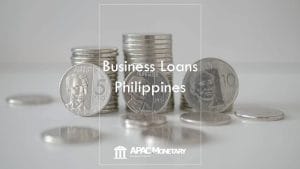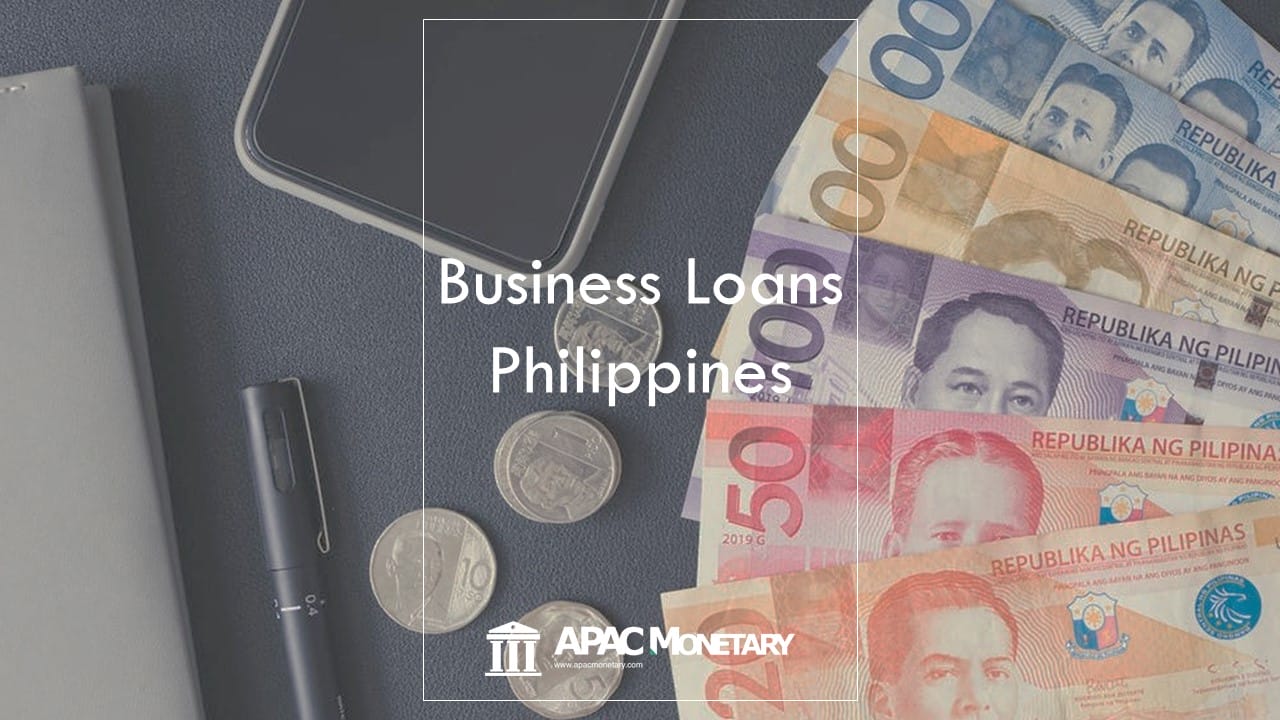Table of Contents
So, why does a Pinoy entrepreneur need a business loan?
A business loan is a financial tool that allows a business to borrow money from a traditional corporate financing company or alternative lender to finance various projects or activities. The purpose of a business loan is to help companies grow, expand, and create jobs. Business loans come in many different forms for various purposes, such as purchasing inventory or funding Expansion projects.
There are several factors that determine whether or not a business will be eligible for a loan, including the company’s credit score, the number of assets the company owns, its historical debt performance, and the terms of the proposed loan.
A business loan or corporate borrowing can be secured by assets, such as real estate or equipment, or by guarantees from family and friends.
There are many different types of business loans, capital financing, and corporate lending available in the Philippines, and each has its benefits and drawbacks. The success of raising financial capital or supplementary budget for a business depends on the nature of your business and your credit score.
A few common types of raising capital and financing in the Philippines include a traditional business loan from a bank, an alternative lending company, a debt financing company, and a private financier.
Different Types of Financing, Lending, and Raising Capital
A business loan is available for every size of business in the Philipines. Here are the 30 types of business loans available in the country.
Bank Business Loan
In the Philippines, a bank business loan is a type of financial product that allows businesses to borrow money from a bank to finance their day-to-day operations. Companies can use bank business financing to cover various expenses, including wages and marketing costs. The terms of bank business loans are typically longer than traditional loans, so businesses should carefully consider all the factors involved in making a decision.
Several banks offer business loans: the Land Bank of the Philippines, Banco de Oro (BDO), the Bank of the Philippine Islands (BPI), Security Bank, and the Metrobank. All these banks have different loan products and terms, so it’s essential to do your research before applying for a loan.
How do I apply for a bank business loan, and which banks give loans to businesses?
If you are interested in applying for a business loan from a bank, click the bank’s name to view its interest rates, payment period, terms, and conditions.
- BDO business loans
- BPI business loans
- China Bank business loans
- DBP business loans
- East-West Bank business loans
- Landbank of the Philippines business loans
- Maybank business loans
- Metrobank business loans
- PBCOM business loans
- PNB business loans
- Philtrust bank business loans
- Philippine Veterans Bank business loans
- RCBD business loans
- Robinsons Bank business loans
- Security Bank business loans
- UnionBank business loans
- UCPB business loans
Pondo sa Pagbabago at Pag-Asenso (P3)- Government Business Loan
The Philippine government’s The Pondo sa Pagbabago at Pag-asenso (P3) loan program offers affordable and cost-efficient microloans to help Filipino small business owners. The loans come with a 2.5% monthly interest rate, making them an ideal option for aspiring Filipino entrepreneurs.
The P3 loan program of the Philippine Government aims to provide an easy and quick source of financing for Filipino micro-entrepreneurs such as resellers, sari-sari stores, and street vendors. This program can help boost the sector, which comprises the bulk of micro, small and medium enterprises (MSMEs) in the Philippines.
Bayanihan CARES Program Business Loan
This financing assistance by the Philippine government aims to help restart their businesses by providing small cash.
SB Corporation directs the Bayanihan 2 Act to expand its existing loan programs for small businesses, cooperatives, hospitals, tourism, and foreign workers affected by the Covid-19 pandemic and other socio-economic reversals. The allocated PHP 8.08 billion in funding will help support the Bayanihan (COVID-19 Assistance to Restart Enterprises) CARES initiative.
Bayanihan CARES objective is to help micro, small, and medium enterprises (MSMEs) recover from the adverse effects of the pandemic. The loan scheme is without interest and does not need collateral. MSMEs only need to pay a one-time service fee of 8% for a 4-year loan term.
- MSMEs can borrow money from PHP 10,000 up to PHP 5.0 million
- 12 months grace period
- Collateral free
- Without interest
Helping the Economy Recover through OFW Enterprise Startups (HEROES) Program
There are over 2 million Overseas Filipino Workers (OFWs) in 190 countries and territories worldwide. OFWs work in a wide range of occupations, including the service, manufacturing, agricultural, and construction sectors.
OFWs have long been a critical part of the Philippine economy, providing remittances that help to support the country’s economy.
The National Government’s program, Helping the Economy Recover thru OFW Enterprise Start-ups (HEROES), provides an opportunity for displaced, repatriated, or returning OFWs to start their own businesses in the Philippines. This program helps these individuals rebuild their lives and return to a sense of stability and prosperity.
- OFW can borrow money up to PHP 100,000
- 12 months grace period
- Collateral free
- Without interest
MSME Credit Guarantee Program (MCGP)
The MSME Credit Guarantee Program (MCGP) is a government-run program that provides financing and loan guarantees to small and medium-sized enterprises in the Philippines. The program provides financing for a wide range of activities, including business expansion, post-incorporation financing, working capital needs, and debt restructuring. In addition, the MCGP provides loan guarantees to help small businesses secure favorable terms from lenders. The Department of Trade and Industry (DTI) currently supervises the program.
The MCGP has been instrumental in helping small businesses get access to essential financing and credit. Since its inception in 2001, the program has provided finance totaling over PhP2 trillion to more than 1 million enterprises. Moreover, the MCGP has helped create nearly two million jobs across the country.
OWWA Personal and Business Loan
The Overseas Workers Welfare Administration (OWWA) is a government-run social welfare agency in the Philippines. The agency offers many business loans to Filipino businesses and Pinoy entrepreneurs.
The different types of financing OWWA provides:
- Export Credit Insurance (ECI)
- Business Start-Up Grants (BSUGs)
- Microfinance Loans
- Small Business Development Banks (SBDBs)
- Enterprise Investment Schemes (EISs)
OWWA offers a variety of loans and other financial assistance to help overseas Filipino workers meet their basic needs. Loans available through OWWA include business financing, short-term loans for emergency purposes, low-interest loans for housing, health care, and other expenses, and long-term loans for purchasing homes or starting businesses.
GSIS Enhanced Conso-Loan Plus
GSIS Enhanced Conso-Loan Plus is a government-backed loan product that offers borrowers (government officials and employees) a longer term than traditional loans.
The Enhanced Conso-Loan Plus Program allows members with at least fifteen years of service to borrow up to twelve months of their salary. The maximum payment term is from six to ten years for members with not less than ten years of paid premiums. Members who have not less than twenty-five years of service are eligible for a fourteen-month loan.
- Salary Loan
- Restructured Salary Loan
- Enhanced Salary Loan
- Emergency Loan Assistance
- Summer One-Month Salary
You may contact the Enhanced Conso-loan Plus, GSIS Contact Center at 847-4747 or email gsiscares@gsis.gov.ph for more details.
Social Security System (SSS) Loan
A loan granted to an SSS member with employment or a currently-paying self-employed or voluntary member intends to meet the member’s short-term credit needs.
What are the SSS loan qualifications?
- Should be currently employed and a member of SSS.
- SSS members such as freelancers, consultants, and self-employed actively contribute regularly.
- You need to make 36 monthly contributions to receive a one-month loan over the past twelve months.
- The applicant must have posted six (6) of their last twelve (12) contributions within the previous two months to qualify for a two-month loan.
- Employers must be updated in the payment of contributions and loans and the payment of other loans with SSS.
How much money can you borrow from SSS?
A one-month loan is equivalent to the average of a member’s last twelve (12) Monthly Salary Credits (MSC) or the amount applied for, whichever is lower.
A two-month loan is equivalent to twice the average of the member’s last twelve (12) MSCs, rounded to the next higher MSC.
The loan will have an interest rate of 10% per year, based on decreasing principal balance, and amortize over 24 months.
To apply, visit https://member.sss.gov.ph/
Private Lending Company Business Loan
A private lending company business loan is a type of loan that is typically available to small businesses. Private lenders provide business capital financing rather than universal banks or other traditional financial institutions. They are often less expensive and more difficult to obtain than traditional loans, and they can be significant for businesses that need short-term financing to cover immediate needs.
Private lending companies offer business capital funding in various formats, including term loans, revolving loans, and asset-based loans. The business loan objective is to finance a single purchase or project while the revolving and asset-based loans objective is to fund ongoing operations. Private lenders typically require borrowers to meet criteria such as good credit history and strong economic prospects before approving a loan application.
Bank Term Business Loan
A bank term loan can be an affordable option when a business needs money to cover short-term expenses. A bank term loan is a loan that has a fixed repayment schedule, typically for six months or one year. This means you will pay back the money you borrow in equal monthly installments over the length of the loan.
There are several benefits to choosing a bank term loan over other financing options. First, banks are usually more familiar with lending to businesses than individual borrowers. This means they have more expertise in assessing your business’s creditworthiness and finding appropriate terms. Second, banks often offer lower interest rates than alternative lenders, which can save you money on the overall cost of your borrowing. Finally, bank term loans are often easier to get than other forms of financing – most banks have a wide range of term loan options available, so you should be able to find one that’s right for your business.
Revolving Fund Business Loan
A revolving loan is a type of borrowing that businesses can use to fund ongoing operations. A revolving loan has a fixed repayment schedule, but the amount you owe changes each month based on the amount of money you borrow and the interest rate charged. This means that your total cost of borrowing remains fixed over the life of the loan – you won’t have to worry about paying back more than you originally borrowed.
The main benefit of using a revolving loan is that it allows businesses to access short-term financing when they need it most. This type of lending is popular among small businesses, as it’s often easier for them to get approved for a loan than it is for larger businesses.
Bank Line of Credit
A line of credit is a type of borrowing that businesses can use to borrow large sums of money. A line of credit has a set repayment schedule, but the amount you owe increases each month based on the amount you borrow and the interest rate charged. This means that your total cost of borrowing can rise quickly if you don’t pay your debt back in full – this is one reason why line of credit loans are often used by businesses that have high-risk debt obligations, such as those in the construction or retail industries.
The main benefit of using a line of credit is that it allows businesses to borrow large sums of money without having to worry about paying back the entire amount in one go. This type of loan is popular among businesses that need to borrow large amounts of money but don’t have the time or resources to get approved for traditional capital financing or supplementary working capital.
Merchant Cash Advance
A merchant cash advance is a type of short-term financing that businesses can use to cover unexpected expenses. Merchants receive cash advances from lenders to cover costs such as equipment or inventory purchases, marketing campaigns, and employee salaries. The advantage of using a merchant cash advance is that it allows businesses to get access to quick funding without having to go through the long and complicated process of getting approved for a traditional loan.
Purchase Order Financing
Purchase order financing in the Philippines is a form of short-term borrowing for a business loan where a company borrows money from a lender in exchange for goods or services that will be delivered to the company. The company must submit a purchase order to the lender specifying the amount of money they need and the time frame for delivery. The lender then notifies the supplier that they are ready to provide the goods or services, and once payment is received from the supplier, the money is transferred to the company’s bank account.
There are different types of purchase order financing available, including direct lending, secured lending, and unsecured lending. Direct lending involves borrowing money from a specific financial institution that specializes in providing short-term credit to businesses. Secured and unsecured loan products involve different levels of security, with unsecured loans being the most risky.
FinTech Business Loan
FinTech business financing is a great way to get the funding you need for your startup. There are various types of financing available so that you can find the right option for your business.
A business working capital loan can come from challenger banks, private lenders, alternative financing companies, and venture capitalists who are engaged in financial technology. Each has its own set of requirements and benefits, so it’s essential to research each option before deciding.
There are also loan products specifically designed for startups, such as Entrepreneur Loans and Seed Loans. These business capital loans have lower interest rates and shorter repayment terms than traditional loans, making them ideal for startups in the early stages of their businesses.
If you’re looking for help getting started with your business, contact an expert at a financial institution or lender to find the perfect product for you.
Angel Investor
An Angel Investor is a private investor who invests in early-stage companies. They are typically wealthy individuals or family members who are willing to risk their money on new businesses. Angel Investors provide supplementary working capital, business financing, capital funding, and a loan capital amount from 1 million to 10 million depending on the financial forecast and viability of the products or company valuation.
You need to know a few things about Angel Investors before you seek a business loan. First, they want to see potential in your company before they make a capital investment. Second, they tend to be very selective – only investing in companies with a great chance of success. Finally, most Angel Investors require that you provide a comprehensive business plan and financial overview before giving a financial capital.
Invoice Factoring
Invoice factoring (also known as receivables financing) helps businesses get quick capital funding or debt financing by allowing them to sell invoices and receivables in advance to lending investors. This is an excellent option for businesses that have high-volume, low-value invoices or receivables.
Investors typically factor invoices at a 50% discount from the invoice’s face value. This means that the business will receive PHP 50 for every PHP 100 of an invoice that it sells.
There are a few things to consider when applying for an invoice factoring loan:
- The terms of the loan: Factoring capital loans typically have shorter terms than traditional capital financing and supplementary working capital, which means that the business may need to repay the business loan sooner than if it were borrowing from an alternative lending company or a private lender.
- The credit rating of the company: Factoring and lending companies are typically more selective about the companies that they finance, so a company’s credit rating is essential.
- The strength of the company’s invoicing and receivables system: If the business has a robust system for collecting its invoices and receivables, its sales figures will likely be reflected.
- The amount of money the business can borrow: Factoring capital loans typically have lower interest rates than traditional loans, but they also have smaller maximum loan amounts.
- The terms of any collateral offered: Factoring lending companies often require businesses to offer collateral to receive a loan. This can include shares in the company, property rights, or other assets.
- The cost of factoring: Factoring costs vary depending on the type of factoring, but they are usually relatively low.
- The time required to receive the loan: Factoring loans usually take a few days to process, but this can vary depending on the company’s credit rating and the amount of money it is requesting.
Invoice Financing
A business can use a few different types of debt financing or alternative lending when obtaining a loan capital amount for a business in the Philippines. One option is invoice financing, which is when a business borrows money by issuing invoices to its customers. This means that the business is essentially borrowing against the future sales of its products or services.
The advantage of invoice financing is that it is a short-term form of debt financing, which means that the business can quickly obtain the money it needs to cover its current expenses. The disadvantage is that the business may not be able to sell all of its products or services to repay the loan at once.
Short-Term Loan
Short-term loans are an excellent option for businesses that need quick cash but don’t have the time or resources to get a long-term loan. Compared to other types of loans, short-term loans are typically more affordable and easier to qualify for.
There are several different types of short-term loans available, so it’s essential to research your options before applying. Some lenders may require a down payment or collateral, while others offer lower interest rates if you have a good credit history.
If you’re looking for a quick fix, short-term loans may be the perfect solution for you. Just make sure you understand the terms and conditions of your loan before signing on the dotted line!
Loans Against Assets
Many types of loans are available to businesses in the Philippines, including Loans Against Assets (LAA). Loans Against Assets objective is to finance projects or investments. They can also be used to purchase property or other assets.
With LAA, a lender can take equity in your business or property as collateral, providing you with a short-term loan to help finance your business operations. LAA can be a great way to get quick access to funds, and it’s often less expensive than traditional loans. To find the best LAA loan for your business, consider your company’s needs and budget.
Equipment Loan
When it comes to financing your business, there are different types of loans and financing that you can use. One such loan type is an equipment loan. Equipment loans’ objective is to help businesses purchase or lease specific pieces of equipment, such as heavy equipment, machinery, computers, office furniture, or other necessary items needed for their businesses.
There are several different types of equipment loans that you may be eligible for, including short-term and long-term loans. Short-term loans are typically available for up to twelve months and can be used to purchase high-value items, such as a new computer system. Long-term loans may be available for up to twenty years and can be used to purchase lower-value items, such as a printing press.
Credit Cards
Credit cards can be a great way to get cash when you need it, but using them as a business loan is risky. Interest rates on credit cards can be high, and if you don’t pay your bill on time, you could end up with a high balance that you can’t afford to pay off. There are also fees associated with using credit cards as a business loan, so make sure you understand the terms before signing up.
Here’s a tip on how to use credit cards properly to avoid the debt trap.
Online Term Loan
Online Term Loan is a type of short-term business loan that is available to borrowers who need money in a hurry. The loans are available through online lenders and can be used to cover a variety of expenses, such as bills, emergencies, or unexpected expenses. The loans are typically approved within minutes and have minimal paperwork requirements.
Peer-to-Peer Lending
Peer-to-peer (P2P) lending is a type of direct lending where investors provide funds to borrowers through the internet. This type of lending is growing in popularity because it is an easy way for small businesses to get loans, and there are no credit checks required.
There are two main types of peer-to-peer loans: unsecured and secured. Unsecured peer-to-peer loans are the simplest form and simply require that the borrower posts security, such as a pledge of assets or shares in the business. Secured peer-to-peer loans require the borrower to put up collateral, such as a mortgage or car loan.
Peer-to-peer loans can be risky for both lenders and borrowers, so be sure to do your research before signing up.
Private Money Lenders
Private money lenders are usually individuals or small businesses that offer high-interest loans to Filipino entrepreneurs and Pinoy business owners who cannot qualify for traditional bank loans.
When looking for private money lenders, it’s essential to research the lender and ask them about their terms and rates. It’s also a good idea to be prepared with your business’s financial information and your credit score so that you can get approved for a loan quickly.
Commercial Loans
A commercial loan is a larger business loan to finance an enterprise or property. Commercial loans can be used for a variety of purposes, such as purchasing equipment, expanding the business, or financing the purchase of a property.
Commercial loans are more expensive than other types of loans, and borrowers typically need to have good credit and an excellent business plan to qualify.
There are two main types of commercial loans: fixed-rate and adjustable-rate. Fixed-rate loans stay the same throughout the life of the loan, while adjustable-rate loans have different rates that adjust according to changes in interest rates.
Both types of commercial loans require borrowers to pay interest on top of the principal amount borrowed. Be sure to ask your lender about specific requirements for obtaining a commercial loan.
Domestic Bills Purchase Line
A Domestic Bills Purchase Line is a type of financing that can be used to buy domestic bills, such as treasury bills, certificates of deposit (CDs), and commercial paper. This type of financing is known as a purchase line because it allows you to borrow money from a lender and then use the money to purchase domestic bills.
The advantage of using this type of financing is flexibility and ease of use for various financial purposes. For example, you can use the money to buy assets or cover short-term debts. The downside is that this type of financing has high-interest rates, so you should only use it if you are sure you will be able to repay the loan in full.
Loan Against Hold-out Deposit
There are different types of financing available to businesses in the Philippines, with loans against hold-out deposits being one option. This type of lending involves a business borrowing money from a lender against the deposit held by the business owner to finance operational costs or expand their business.
This type of financing is flexible and can be used to finance a wide range of activities, including new investments and expansions and day-to-day operations. The downside is that it can be challenging to get approved for, especially if the hold-out deposit amount is high.
Amortizing Business Loan
In the Philippines, amortizing loans are a type of loan that allows borrowers to spread out the cost of their loan over time. This type of loan has a fixed interest rate and usually has a longer repayment period than other loans. A fixed-rate loan in the Philippines is usually a more accessible option for borrowers who want to pay off their debt quickly.
Franchising Business Loan
A franchising loan is a type of loan that allows businesses to borrow money to open new locations. This type of loan is often used by businesses that want to expand their operations. These loans are available through several lenders and can be used for a variety of purposes, including purchasing or building new assets.
FAQ – Business Financing in the Philippines
Here are some of the frequent ask questions about business lending in the Philippines.
Where to borrow money to start a business Philippines?
There are a variety of options for where to borrow money to start a business in the Philippines. These include commercial loans from banks, credit unions, other financial institutions, and private loans from individuals or businesses.
Banks’ commercial loans are usually the most affordable option, but they may have higher interest rates and require a longer repayment period. Credit unions offer lower interest rates and shorter repayment periods, but they may not be available in all areas of the country. Private loans from individuals or businesses can be more expensive than commercial loans. Still, they usually come with better terms – such as lower interest rates and shorter repayment periods – and may offer additional benefits such as insurance coverage.
It is essential to carefully weigh all of your options before borrowing money to start a business in the Philippines. The best way to find the right loan for your needs is to speak with a qualified financial advisor.
How to raise capital to expand my business in the Philippines?
There are a variety of ways to raise capital to expand your business in the Philippines. One option is to tap into personal or family savings. You can also seek out loans from banks or other financial institutions. Corporate venture capital funds, angel investors, and public markets are also options. When choosing a source of funding, it’s important to understand the risks and rewards associated with each option. Make sure you have a solid plan for repayments and revenue growth before reaching out to potential lenders.
How can I get a loan to start a business from the government?
There are a few different ways to get a loan from the government in the Philippines. The most common way is to apply through a government-owned bank. You will need to provide documentation of your business, such as an incorporation document, financial statements, and tax returns. You may also need to provide letters of credit or guarantees from reputable sources.
You can also get a loan from a private lender. This is usually more expensive than getting a loan from a government-owned bank, but it may be more flexible. You will need to find a private lender who is interested in lending to businesses in the Philippines. You will need to provide information about your business and financial history and copies of your business documents.
Do banks give loans to startups?
Do banks in the Philippines give loans to startups?
There are a few types of loans that can be given to startups in the Philippines. These include startup capital, line of credit, and commercial loan.
In terms of startup capital, banks may offer a loan amount between PHP 10,000 and PHP 500,000. This type of loan is ideal for businesses that have not yet reached profitability.
Line of credit loans are more common in the Philippines and come with an adjustable interest rate that can range from 14% to 28%. Minimum required amounts for a line of credit range from PHP 50,000 to PHP 5 million.
Commercial loans are usually granted to businesses with good credit ratings and long-term prospects.
How much business loan can I get in the Philippines?
In the Philippines, there are various business loan options for borrowers. These options can include personal loans, debt financing, corporate lending, commercial loans, small capital funding, and working capital borrowings.
The amount of money that a borrower can borrow depends on their credit score and their borrowing history. Borrowers who have good credit scores and no past debt can usually borrow more significant amounts of money than borrowers with lower credit scores or more debt in their past.
Businesses also have different types of financing available to them. Personal loans are typically used to cover short-term needs, such as to cover the costs of starting a new business or paying off debts that need to be paid immediately. Small business lending is designed for businesses with up to 50 employees and is usually more affordable than commercial loans. Commercial loans are the most common type of loan used by businesses. They can be used to cover various costs, such as buying equipment, expanding a business, or making improvements to a business.
What kinds of lenders are available in the Philippines?
There are several different lenders in the Philippines that offer business lending. These lenders include banks, private lenders, and private finance companies. Most banks offer personal loans and small capital financing, while credit unions are more likely to offer commercial loans. Private finance companies often provide small corporate lending or commercial loan financing for high-risk borrowers.
Simple Tips Before Signing that Business Loan Contract
Some tips for choosing the right type of financing for your business include carefully assessing your needs and understanding the terms and conditions of each option. Additionally, it is crucial to work with a reputable lender to provide you with the best possible terms and conditions.
Borrowers should always research the terms and conditions of any business loan before applying. Lenders typically have different interest rates and require different documentation from borrowers before approving a loan. Borrowers should also be aware of the penalties that they may face if they fail to repay a business loan on time.
Conclusion: Philippines Business Loan Tips and Different Types of Financing
There are several different types of business loans and corporate financing available to businesses in the Philippines. Some common types of financing include bank loans, PO financing, credit cards, and lines of credit. It is vital to choose the right type of financing for your business, as each type has its own advantages and disadvantages.











